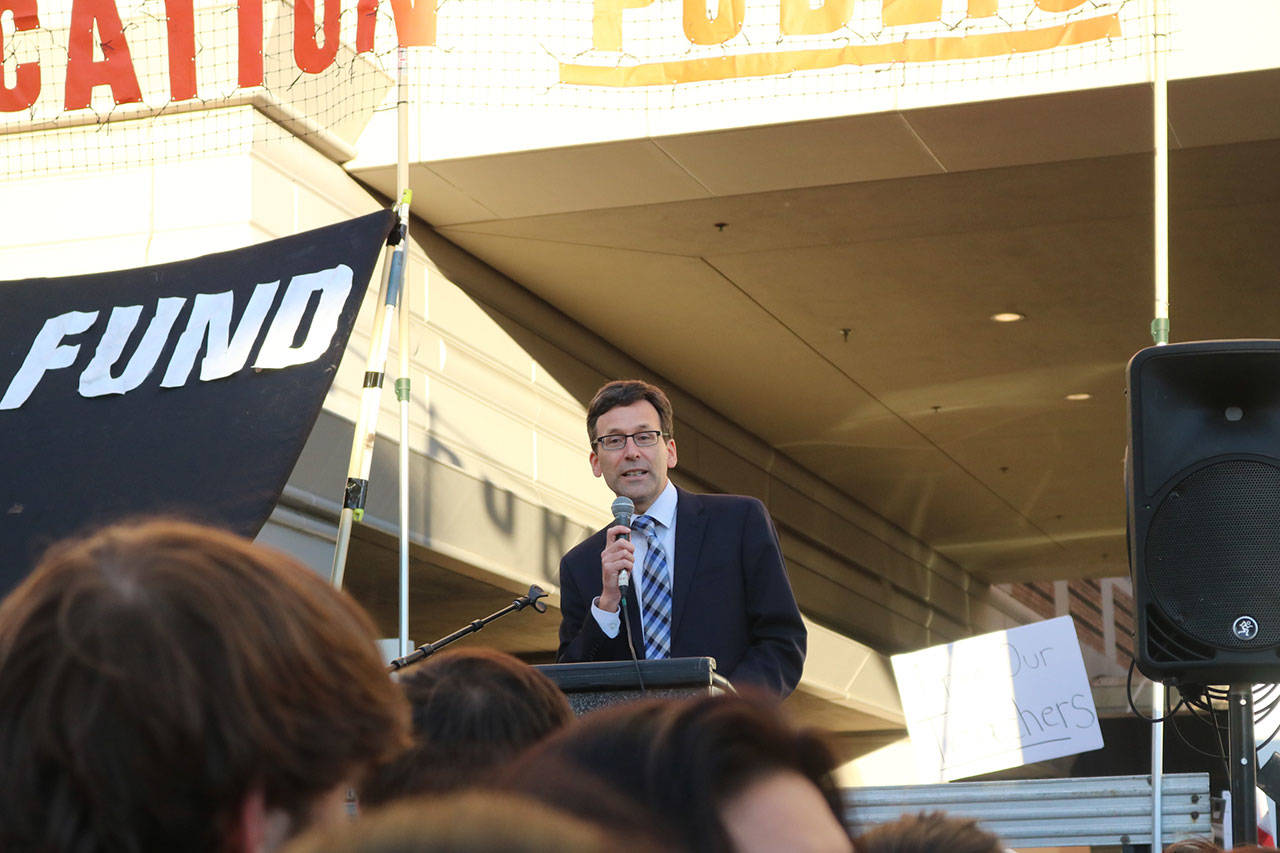Veterans are at a higher risk of experiencing homelessness than other adults, according to a 2015 study by the VA Connecticut Health Care System and Yale University. Yet, veterans throughout Washington state are vulnerable to discriminatory practices that prevent them from finding the stable housing that they need.
A recent probe conducted by The Wing Luke Civil Rights Unit—a team in the Attorney General’s office that investigates discrimination in housing, education and elsewhere—found that at least 10 property management companies throughout the state were turning away applicants who presented Veterans Affairs Supportive Housing (VASH) vouchers that provide rental assistance for veterans with disabilities. Created in 2008, VASH is a joint program between the U.S. Departments of Housing & Urban Development and Veterans Affairs, which offers housing assistance, case management, and clinical services for homeless veterans.
Attorney General Bob Ferguson announced Tuesday that eight of those companies have entered into agreements to end discriminatory practices and to consider accepting VASH vouchers in the future. The companies will also pay Ferguson fines ranging from $5,000 to $6,500, which will partially be used for the monitoring and assurance of the agreement, in addition to customer restitution. Two other companies that didn’t accept the VASH vouchers—Colorado-based Mission Rock Residential LLC and Utah-based Apartment Management Consultants LLC—have refused to enter into agreements with Ferguson. The Attorney General plans to file lawsuits against the two companies if House Bill 2578 doesn’t pass this legislative session. Under the proposed legislation, landlords would be banned from discriminating against tenants based on their source of income, including the use of VASH vouchers.
“Veterans are protected from discrimination by Washington law,” Ferguson said in a statement. “No veteran should be denied a roof over their head based on how they plan to pay their rent.”
The Wing Luke Civil Rights Unit had heard from fair housing advocates that veterans with VASH vouchers were being denied housing. Testing of properties throughout the state began in September 2016 and ended in February 2017 showed a “consistent message of thank you for your services, but no thanks on being a tenant on our property,” Wing Luke Civil Rights Unit Chief Colleen Melody said. “Given Washington law and the value that Washington’s anti-discrimination law places on veteran status and military service, that seemed really at odds with the legislative policy that we understand to have been in place in our state for many many years.”
Vouchers are especially needed in King County, where a U.S. Department of Housing and Urban Development report released last December showed that the county had the second highest veteran homelessness rate in the country, behind only Los Angeles.
Spokane-based nonprofit Northwest Fair Housing Alliance worked with the unit on some of the veteran discrimination investigations. The alliance’s Executive Director Marley J. Hochendoner noted the importance of offering vouchers to marginalized communities in an increasingly unaffordable rental market. “The vacancy rate for rental units is very low in our region and rents are rising. I believe this is a trend in many communities in Washington, and across the nation,” Hochendoner said in an email to Seattle Weekly. “These market factors limit the options that renters, particularly people with disabilities or veterans on low fixed incomes, have for accessing rental housing. If an applicant has a subsidy or voucher, and a housing provider doesn’t accept it, then that applicant has an even greater challenge finding housing.”
Staff at the VA Puget Sound Health Care System’s Community Housing & Outreach Services program echoed the need for VASH vouchers and social services. The agency currently works with ten public housing authorities that serve patients throughout the region. Through their partnership, 1,709 veterans in the area are currently using the 1,849 available vouchers, a year to date utilization rate (92.4 percent) that surpasses the national average (90.88 percent).
And at least in Seattle, the VASH program seems to be working. Seattle Housing Authority Director of Communications Kerry Coughlin, said that the housing authority hasn’t received any allegations of discrimination within the past few years. “Once in a pretty great while, we’ll hear … anecdotally of a landlord saying that they don’t accept a voucher for a rental listing, but there’s never been evidence submitted to us, and no VASH participant has specifically come forward and said, ‘I feel that I’ve experienced discrimination.’ ” She added that the Housing Authority would refer applicants who experienced discrimination to the Seattle Office for Civil Rights.
Although Coughlin was unaware of any instances of discrimination, she noted that some military veterans have post-traumatic stress disorder, which can lead to a recurring pattern of homelessness that could impede their ability to pursue career and educational opportunities. “But like any other population, that will vary person by person,” she noted. The Housing Authority currently administers 470 VASH vouchers, and 383 veterans are in housing using their vouchers. Coughlin added that a number of veterans have also been issued vouchers, but they’re still looking for housing.
mhellmann@seattleweekly.com








